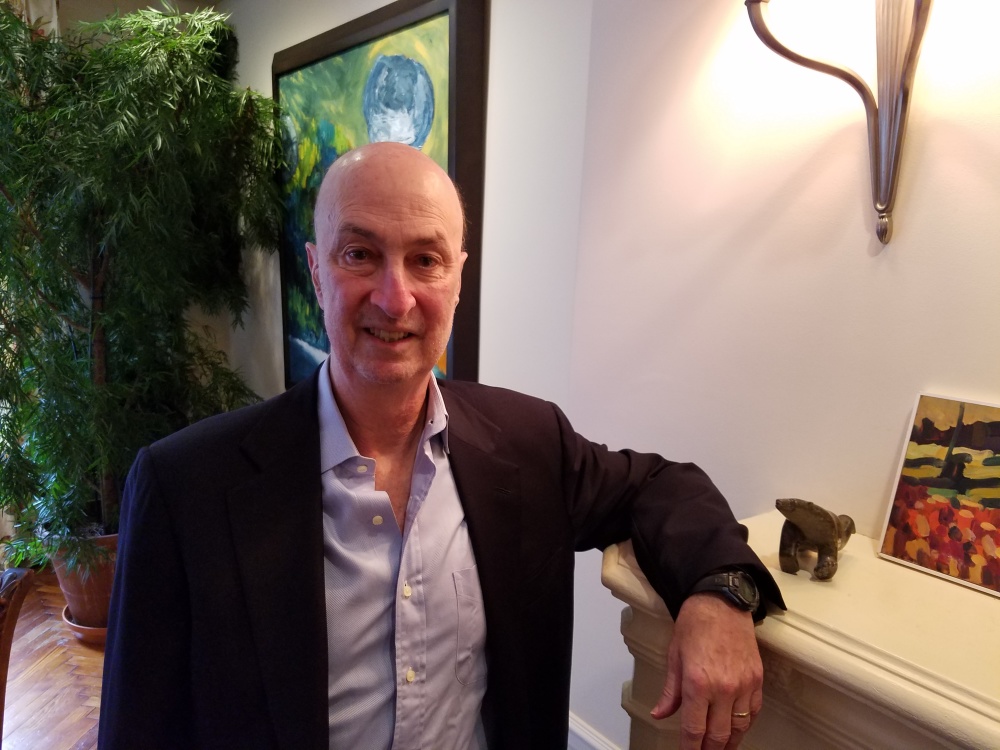
By Rich Rothman
In 2013, I was facing a lengthy hospital stay after being diagnosed with a life-threatening blood cancer known as myelodysplastic syndromes (”MDS”). I had decided to proceed with a bone marrow transplant, which was thought to be the only potential cure. After being admitted to the hospital, I had intensive, round-the-clock chemotherapy for four days prior to the transplant. The chemo was intended to destroy my immune system so my body wouldn’t reject the donor’s bone marrow and would instead rely on it to generate new blood cells. The challenge was how to keep me alive when I had been purposely rendered so vulnerable.
Following the transplant, which seemed like a high-stakes blood transfusion, I remained in the transplant patient ward for a month, virtually in complete isolation. I was confined to my hospital room and the occasional walk on a 30-yard path around the ward, while masked and gloved. With rare exception, the only people I saw were my wife, Melissa, Dr. Ted Alyea — my Dana Farber transplant doctor who visited me virtually every day — and the very attentive team of nurses, nurse practitioners, and technicians who had eyes on me around the clock.
Any way you look at it, a prolonged stay in the hospital isn’t fun. Dr. Alyea had warned me that one of the biggest challenges I would face during my month-long stay would be boredom. Certainly, there were physical discomforts — including the tiring effects of the pre-transplant chemotherapy, difficulty swallowing, stinging in my eyes, digestive issues, general weakness, and sporadic sleep. But what felt most daunting was that the days seemed so long and there appeared to be so little I could do.
Developing a routine
The most important advice came from one of my gifted nurses and it transformed my hospital experience. Caitlyn suggested that I develop a routine to give some structure to my days. I developed a fairly fixed daily schedule, which I then followed religiously. Morning: watch the news, have breakfast, walk a few laps around the ward, shower and change into clean clothes, read with music. Afternoon: lunch (usually watching the Barefoot Contessa on the Cooking Channel), nap, read, and walk again. Evening: dinner, walk, and watch TV or a movie with Melissa.
Read More:
Keeping a log
A few other habits helped me manage. First, I kept a daily log, briefly recording how I was doing each day. During my stay there were various ailments — some fairly uncomfortable and discouraging, particularly when it was hard to see beyond them. I took brief notes of my symptoms — when they surfaced, how they progressed, and when they were behind me. When new problems arose, I could look back at my notes to give myself a pep talk along the lines of “this too shall pass.”
Learning about the team
I also spent a lot of time getting to know the nurses and other members of the hospital staff with whom I came into contact. Rather than harping on my condition, I asked and we talked about their families, education and training, interests and hobbies, as well as their aspirations. It was fun and educational for me — and I hope enjoyable for them. One terrific nurse had some delicious-sounding recipes from her Italian grandmother that we discussed in detail, including one for her Sunday Sauce — a tomato sauce with ground beef, ground pork, and sausages. I wrote it down and Melissa and I made it when I got out of the hospital.
Make yourself at home
It may sound silly, and probably won’t work for everyone, but within days of being hospitalized, I stopped wearing the ugly and clumsy hospital gowns. Instead, Melissa brought me the LL Bean’s flannel pajama pants, old tee shirts and flannel shirts I live in at home — as well as a new, sterile pair of crocs. This personalized “uniform,” which she washed and refreshed each day, made me feel more like myself and less like an invalid.
Melissa engaged in other ploys to brighten my captivity. One example: She plastered the otherwise drab hospital room walls with huge photos of our sons and a poster-sized picture of the lake in Maine where we have a summer house.
I wasn’t always successful in maintaining a positive outlook, particularly in times of greater physical discomfort. But these simple habits helped me avoid spending the long days and weeks worrying and talking about my illness and the risks ahead. I’m sure other patients have done different things to keep their spirits up during prolonged hospital stays. Please let us know about them.
Visit Rich’s Blog, Reflections Across The Spectrum, to read more.
